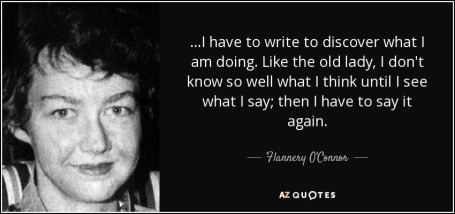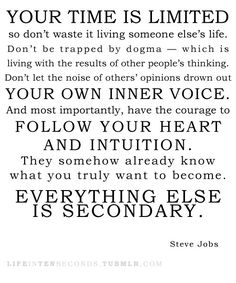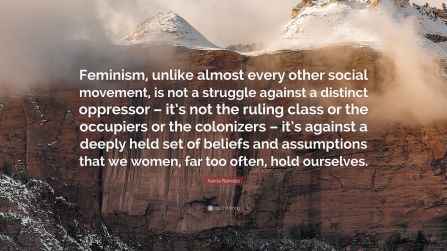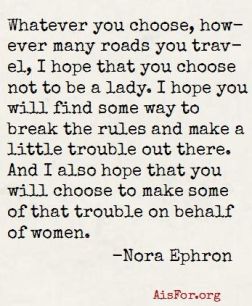When I was a teenager, I loved horses. I rode competitively briefly, showing other peoples’ hunters… and I desperately wanted one of my own.
Standing next to a fellow rider once, I was asked if I had my own horse. I replied, no…but I hoped to have one someday. The girl snorted, looking down her nose at me. “If you really wanted one,” she said, “You would have one by now.”
Little did I know, this was how the world would be looking at my writing forty years later.
If you were any good, you would be published by now…
To my Horror, I actually believed that for an ungodly long time.

The Truth About Age in Fiction Writing
I have often wondered why no one ever discusses age (like race) as a contributor to Horror fiction.
I have often wondered why once we are ensconced (read trapped or buried) in other careers, relegated to merely dreaming about our writing, we stop believing publication is possible. Or viable. That we come to believe success in writing is only for the young among us.
Some of this is the fault of the marketing machinery of Big Publishers, who like to advertise new writers as “the next Stephen King”… implying that such a writer is a youthful puppy, a keeper, a long termer, a veritable gold mine of future works to be immortalized in film. And sometimes this is because Big Publishers NEED another Stephen King… because some day they will have to navigate our genre WITHOUT him…
But many times it is also because those of us who are right now the Old Writers struggling in the genre grew up with a totally different concept of success – actual examples of lives lived writing… even writing even mediocre Horror fiction. We grew up with the 1970’s Boom, and so to us, success means writing a novel or two in our twenties and transcending into being a Professional Writer. To us, success has been painted as being able to not only make a living off our work, but living well…
Yet if that scenario failed to play out, we start doing the math. After years of listening to the many criticisms and following the life-plans dictated by other people, we wonder: is there still time? Will we live long enough to woo Big Publishers into paying us Big Money contracts (the kind that don’t exist anymore), and didn’t we miss the boat already if we can’t be young and flaunt it? To do all of the things we wanted to do as rich, successful authors?
Old writers are often their own worst enemy…
But then we have had a lot of help in twisting our own self-images.
Because I have also wondered when it became okay to associate older, unpublished writers with failure…to make it an inside joke.
And why is it “proof” of talent or vision to not only get published, but to be young and rich and published? Only some of us are old enough to remember when that was even possible…
It’s not like editors know the ages of submitting authors either… So it must be coming from ourselves.
We have bought into the mythology that unless we are published when we are young, and are thereby a “Professional” (and rich) Writer well before we are thirty, we are simply not good enough…We didn’t want it badly enough. So now we don’t deserve to associate with Real Writers…
Suddenly there is an accompaniment of snorts and sideways, condescending glances… Suddenly we are out of the loop, out of style, and unable to gauge exactly when that moment of stellar success was supposed to have happened.
To make things worse, we keep moving that secret Age of Success, the one that marks the moment we should resign ourselves to other jobs and other careers… Whose idea is that?
Writers of our genre come in all genders, ages and colors, all geographic locations and climates, all political and religious bents. Yet time and again we are given a prepared profile of the Professional Writer… in our genre, typically still a Caucasian male, young enough to remember his youth and still writing about it and his own young adulthood.
Women writers of Horror, it seems, are more readily painted as Young Adult writers, or writers of fantasy. We are to be seen and not heard, demure… nurturers of young readers. We have, apparently, even lost our genre identities as the mistresses of the ghost story. We are not to be taken too seriously.
It gets worse the older we are…
Collectively, we have lost our voices as men and women unafraid to write as older men and women. It is kind of like being in Hollywood… as though we are being (in not-so-subtle ways) coached to disguise our ages (when not our genders) by writing about youth, as though the only ones interested in reading Horror are the very young people the Establishment tends to claim don’t read anymore…
These are all lies, I tell you…lies!
Not only is Stephen King the proof, but so are writers like Ramsay Campbell, Anne Rice, Richard Matheson, Dean Koontz, Neil Gaiman, Tanith Lee, Dan Simmons, Clive Barker, Bentley Little, and Robert R. McCammon… all of them “vintage” and still carrying our genre…even in backlist titles.
As a reader of many of them, I have watched a good many protagonists creep up in age… leaving behind that New Adult thing that has tried to insert itself between Young Adult and Real Adult fiction. Our own writers have tried to drag Horror back into the Adult arena, dancing with Literary values by writing stories which are in themselves proof that some of the best Horror gets written after we grow up. Everywhere there are signs being downplayed and ignored… Horror is growing up.
So why does the myth of youth persist when defining New Writer Success in our genre?
Who has commandeered the profile of writers to suggest that if a writer has not “made it” by the time they are in their twenties and “established” by their thirties, then Fate is telling you they are not worthy?
The truth about age in Horror fiction writing is this: youth is where we learn about what scares us the most; old age is where we learn about confronting that fear… So while we may have great scary ideas as young writers, and we might write boldly about those things, as older writers we know how to throw and receive a punch. We are, in fact, more likely to generate Horror fiction with Literary elements.
Why?
Because it takes some living to write what you know.
And it takes even more living to write what you believe.
The truth about old writers, published or not?
Writers, like fine wine, improve with age…

Getting Past the Stereotypes
Like most Horror writers, I started writing pretty early – toying with ideas when I was a teenager, heavily influenced by the many writers of our second Golden Age of Horror and Science Fiction in the 1970’s Publishing Boom. This was the time of the paperback – what book peddlers call Mass Market paperbacks, and what was then bursting onto the scene as “Pocket Books” – those small paperbacks for under $5 that were on racks and spinners in every grocery store, hospital, drug store and airport.
This was when fiction was so mass-produced that the impression was left on many a young writing hopeful that there was a living to be made writing fiction and an unending world of story to be savored out there. Who would have thought it was a phase? Who would have thought that pulp stories would be pushed out of our immediate consciousness and that book prices would rise precariously, nearly putting fiction out of reach entirely, and severely limiting our choices both professionally and as readers?
Sadly, the demise of the age of the Mass Market paperback came with another price: the end of the Mid-List Author, the complete and utter destruction of writing careers, of publishing careers, of…writers.
Many of us were left adrift with our dreams. We had nowhere to go… And when former industry standards are being laid off, let go, and dicked over, when top editors are being unceremoniously dismissed… What hope is there for unknown writers?
Most of us were forced to abandon our dreams, to sell them out for “real” jobs, coerced into believing that because “anyone can write, writing is no worthy talent.”
So we spent decades writing stellar letters, correcting CEO’s bad grammar, creating easy to understand Standard Operation Manuals and Employee Handbooks. Later, we did some awesome presentation materials, edited scientific reports for style and grammar, we made the coffee, we cleaned the bathrooms.
And all the while Stephen King kept writing, kept being published, kept proving that it’s the story, dummy… it’s all about the story…
So pardon my generation if we took a little while to find our way back to sanity. It only took being sold out by every generation that went before and half of them coming after, by losing our alternate “careers” and retirement savings and being passed over for real jobs no matter how often we returned to schools and collected degrees, and maintained GPA’s our younger classmates seldom did.
It took realizing that we have been had… that we have been cheated and tricked and bribed out of our real purposes in life…
It took realizing we sold out…

That means that yes, my generation is in the midst of an epiphany.
And no matter what other well-meaning folks or scheming cads intended by saying what they said to us… We did this to ourselves. We abdicated…
And we are all the more miserable for having done so.
I think if older writers have one message for the younger ones shyly coming up behind us it is this: stop listening to the “experts.” Especially today, the rules are being rewritten, flaunted, disposed of.
Make your own. Take your own life by the horns and don’t look down, don’t look back, don’t let go…
This means that just like this old Horror writing woman, you have to decide what will be important in your life: holding onto what makes you, you… Or pretending that “someday” will come before you die.
It means whether you are male or female, you cannot believe in stereotypes… like old people will only write fiction other old people will want to read (like filling a niche is a bad thing), or that old people can’t write fiction that relates to younger readers.
Pish tush.
It only means we really, really shouldn’t try to write in “modern” slang, to believe our own stereotypes about young people.
We Ancient Ones have had quite enough of the stereotypes, anyway. And if you are a woman, chances are you have been hearing them since you lost that 20-something baby fat and your front end alignment started needing annual adjustment.

The Eldritch Uprising
You may not have noticed, but there is a movement afoot. A bunch of old folks have gone rogue and started looking for “second” careers… (I am on number 39, thank you, Silicon Valley.)
We have realized that we are NOT our jobs, but our jobs may in fact be US. Who we are at the end of the day comes down to what we believe about ourselves, about happiness.
So many of us who tried to be writers just in time to become other cogs caught in other machinery have begun to come home. Just in time, too… because now we don’t need the Mass Market boom, or the classy sassy editor, or the big New York publishing machinery – it would be nice, but we don’t need it.
Because the same technology that vampirized our savings accounts and fake careers, has also provided us with the ultimate put-up-or-shut-up opportunity: self-publishing.
And ironically, what we hear from traditional publishing is a whole lot of whining about quality.
For sure, the price of self-publishing sometimes comes at the sacrificial altar of quality… But if we apply what we learned working in all of those endless clerical jobs about editing and presentation and layout and marketing…
Come on. You fellow old folks know exactly what I am saying… we already ran companies, offices, projects…
And if we can do them for others we can darn well do them for ourselves.
We just have to keep ourselves from getting giddy – drunk with excitement and anticipation, blinded by the possible rose-colored glasses of delusion.
Sure maybe we are J.K. Rowling’s long lost Literary Twin, the New Stephen King…
But most likely not.
So our rebellion must be tempered with humility. Don’t rush to publication. Don’t assume your writing is “good enough” without having others (who don’t care about your feelings) read it. Pay people to judge it. And learn how to fix the things that are found to be wrong…
As Eldritch Ones, we must realize that we may indeed have missed the boat in the quest to have our work to be well-read and to die famous, to quit the day job and live adequately on Social Security.
But we have not missed anything of Life. We still have the capacity to break barriers, to create something new in the vacuum of modern genre writing, to be… rebels. Old rebels, but rebels nonetheless.
Maybe that’s especially true for older women…Maybe nobody ever suspected you had Horror stories tucked away in your cookie-baking apron, or that you’ve fed every co-worker who ever got you laid off to the most unspeakable of monsters…
The bottom line is this: when writers get old, they write what they think. It’s a miracle. We stop caring what other people think.

Your writing is what you say it is, not what others say it is. It is also where you say it is… there is NO timeline, no age limit constructed by people with questionable motives and possible psychological issues of their own.
We also come to realize that by doggies we have opinions that do not have to conform, that we are as writers generally not conformists as a rule… that maybe, just maybe we should have been torching our own underwear with protest groups a long time ago instead of letting the Herd think for us.
Maybe that is how we turn it around. We realize maybe to our own perverse shock and joy that all of these years we really were feminists, or conservationists, or advocates for the unlikely and un-preferred.
And then things like Literature begin making sense… becoming even more mysterious, carrying codes and secret language we never before picked up on. And we realize with giddiness that we can write that way too…that it is the unwritten, unspoken challenge of the profession to do so…
Suddenly we realize we have actual opinions about the way things have played out in wars, in society, in the ways we treat each other right here in our own generational decades.
Suddenly our age informs our writing… and we cannot stop it.
And we begin to build monsters, looking for ways to say what we have by evolution come to realize: that we are where we are because we did not speak up when it counted, when it was for ourselves. We believed the mythology. And there is only one way to break out of our self-imposed misery…
We write. We are writers. That is what we do.
Don’t be surprised if there are tentacles.
We warned you.

Never give up. We don’t write for others. We write for ourselves. Great thinking here KC.
LikeLiked by 2 people
I just figured it was time somebody said it… We let ourselves be shaped by stereotypes way too often, and who knows how much it has really cost us?
LikeLiked by 2 people
This is another excellent essay, and as a man of my age, I agree that we simply should continue writing and do our best to be read.
LikeLiked by 2 people
I’ve just heard so many older writers voice their belief that it is too late for them…It is NEVER too late!
LikeLiked by 1 person
Reblogged this on charles french words reading and writing and commented:
This is another excellent essay from K.C. Redding-Gonzalez!
LikeLiked by 1 person
Thank you for passing my opinions on! I appreciate every boost!
LikeLike
Great article! As you say – ‘Because it takes some living to write what you know. And it takes even more living to write what you believe’. I couldn’t agree more, besides there’s just no way I had the life experience when I was younger, and I didn’t have the passion either. Now (55) feels perfect for me, whatever may come of it, I do the best I possibly can.
LikeLiked by 1 person
I also find I didn’t have the guts to say what I believed, so fearful was I of being caught outside that safe, suffocating bubble of conformity… (And the fifties are fabulous by the way, the more FEARLESS we are! Welcome to snark side…)
LikeLiked by 1 person
Yes! It is never too late to begin whatever you wish to do. We are only as old as we tell ourselves, by our actions and are perceptions. I have always believed that an age is only relative to what you believe about age. Thank you KC, once again for a fantastic, pertinent post that everyone should read! K D
LikeLiked by 2 people
And thank you for saying so! It’s time we got a little militant in defending our right to continue to grow and experience life… it ain’t over til we SAY it’s over! And we know a lot more than we are commonly given credit for. Grey Panthers unite!
LikeLiked by 1 person
Yes!! I’m with you!! K D
LikeLiked by 1 person